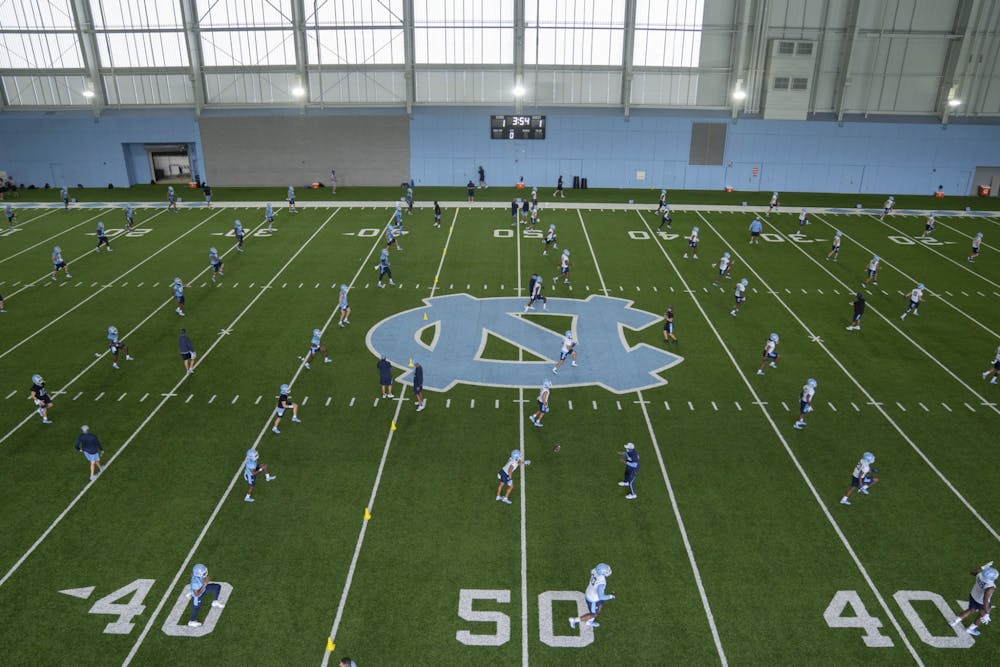With North Carolina football set to kick off its season Saturday against Syracuse, team doctor and Director of Sports Medicine Dr. Mario Ciocca said he is in favor of playing fall sports amid the COVID-19 pandemic, despite concern from others in his profession about the still-unknown effects of the coronavirus on college athletes.
While doctors like Carlos del Rio, an adviser to the NCAA, have compared scheduling football games to deciding what time the band will play on the Titanic, Ciocca says he sees value for athletes, both physically and mentally, in playing in the fall.
“It’s not going to make a difference between now and January,” Ciocca told The Daily Tar Heel. “What’s the use? Back in March, we thought that things would be better right now, and we’re not in a better place and we’re probably not going to get there until we have a vaccine.”
Ciocca said he was not optimistic about the prospect of an effective vaccine coming before early 2021.
“If a vaccine comes out in the fall," he said, "it would not have been through all the trials that you’d usually see.”
His comments came less than three weeks after the University moved all classes online following COVID-19 clusters on campus. NCAA president Mark Emmert said in May that “if you don't have students on campus, you don't have student-athletes on campus,” adding, “If a school doesn't reopen, then they're not going to be playing sports. It's really that simple."
Since then, some team doctors have raised red flags regarding adverse long-term effects of the coronavirus on college-aged athletes. The primary concern is myocarditis, an inflammation of the heart muscle that’s usually caused by a viral infection and can lead to chest pain, abnormal heartbeat and shortness of breath. The preliminary results of an Ohio State University study, referenced in the New York Times, found that close to 15 percent of athletes who contracted COVID-19 — almost all of whom experienced mild or no symptoms — had myocarditis.
Ciocca said myocarditis is a top concern at UNC, and that any athlete who tests positive for COVID-19 goes through tests to detect myocarditis. While some players have required further testing because of either a “slight abnormality” in test results or a continuation of COVID-19 symptoms, no UNC athletes have been definitively shown to have myocarditis. And informally among other ACC doctors, Ciocca said, no other myocarditis cases have been reported in the conference. Still, conversations are ongoing.
“This is something that we’re still looking at here, as well as regionally and nationally,” he said.




